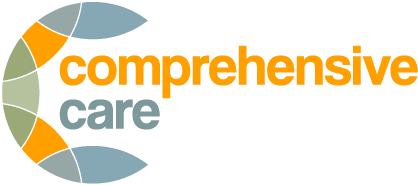Comprehensive Care is committed to ensuring all use of health information, by this organisation and by our member practices, complies with all legal requirements.
Your right to privacy and to the proper use of your health information is protected by the Privacy Act, the Health Information Privacy Code, and the Code of Health and Disability Services Consumers’ Rights.
The following fact sheet is an appendix to the document “Enrolment Requirements for Contracted Providers and Primary Health Organisations” (Word, 34 pages).
Use and confidentiality of your health information (fact sheet)
Your privacy and confidentiality will be fully respected. This fact sheet sets out why we collect your information and how that information will be used.
Purpose
We collect your health information to provide a record of care. This helps you receive quality treatment and care when you need it.
We also collect your health information to help:
- keep you and others safe
- plan and fund health services
- carry out authorised research
- train healthcare professionals
- prepare and publish statistics
- improve government services.
Confidentiality and information sharing
Your privacy and the confidentiality of your information is really important to us.
- Your health practitioner will record relevant information from your consultation in your notes.
- Your health information will be shared with others involved in your healthcare, and with other agencies with your consent, or if authorised by law.
- You don’t have to share your health information, however, withholding it may affect the quality of care you receive. Talk to your health practitioner if you have any concerns.
- You have the right to know where your information is kept, who has access rights, and, if the system has audit log capability, who has viewed or updated your information.
- Your information will be kept securely to prevent unauthorised access.
Information quality
We’re required to keep your information accurate, up-to-date and relevant for your treatment and care.
Right to access and correct
You have the right to access and correct your health information.
- You have the right to see and request a copy of your health information. You don’t have to explain why you’re requesting that information, but may be required to provide proof of your identity. If you request a second copy of that information within 12 months, you may have to pay an administration fee.
- You can ask for health information about you to be corrected. Practice staff should provide you with reasonable assistance. If your healthcare provider chooses not to change that information, you can have this noted on your file.
Many practices now offer a patient portal, which allows you to view some of your practice health records online. Ask your practice if they’re offering a portal so you can register.
Use of your health information
Below are some examples of how your health information is used.
- If your practice is contracted to a Primary Health Organisation (PHO), the PHO may use your information for clinical and administrative purposes including obtaining subsidised funding for you.
- Your District Health Board (DHB) uses your information to provide treatment and care, and to improve the quality of its services.
- A clinical audit may be conducted by a qualified health practitioner to review the quality of services provided to you. They may also view health records if the audit involves checking on health matters.
- When you choose to register in a health programme (eg immunisation or breast screening), relevant information may be shared with other health agencies involved in providing that health programme.
- The Ministry of Health uses your demographic information to assign a unique number to you on the National Health Index (NHI). This NHI number will help identify you when you use health services.
- The Ministry of Health uses health information to measure how well health services are delivered and to plan and fund future health services. Auditors may occasionally conduct financial audits of your health practitioner. The auditors may review your records and may contact you to check that you received those services.
- Notification of births and deaths to the Births, Deaths and Marriages register may be performed electronically to streamline a person’s interactions with government.
Research
Your health information may be used in research approved by an ethics committee or when it has had identifying details removed.
- Research which may directly or indirectly identify you can only be published if the researcher has previously obtained your consent and the study has received ethics approval.
- Under the law, you are not required to give consent to the use of your health information if it’s for unpublished research or statistical purposes, or if it’s published in a way that doesn’t identify you.
Complaints
It’s OK to complain if you’re not happy with the way your health information is collected or used.
Talk to your healthcare provider in the first instance. If you are still unhappy with the response you can call the Office of the Privacy Commissioner toll-free on 0800 803 909, as they can investigate this further.
For further information
Visit www.legislation.govt.nz to access the Health Act 1956, Official Information Act 1982 and Privacy Act 1993.
The Health Information Privacy Code 1994 is available at www.privacy.org.nz. You can also use the Privacy Commissioner’s Ask Us tool for privacy queries.
A copy of the Health and Disability Committee’s Standard Operating procedures can be found at http://ethics.health.govt.nz/operating-procedures
Further detail in regard to the matters discussed in this Fact Sheet can be found on the Ministry of Health website at http://www.health.govt.nz/your-health/services-and-support/health-care-services/sharing-your-health-information.
